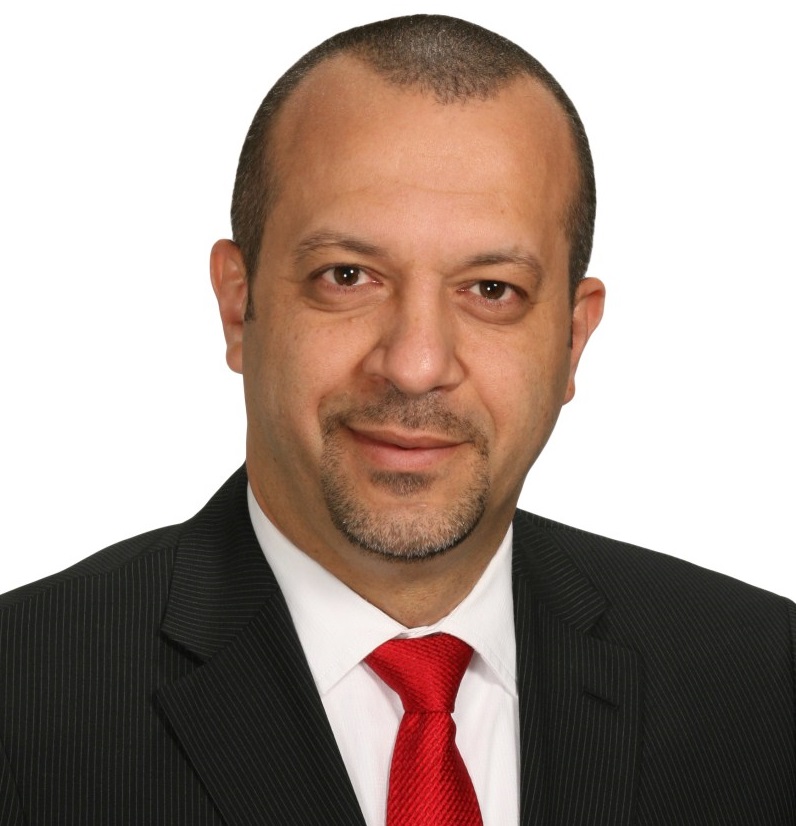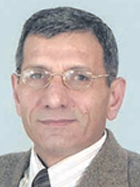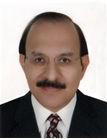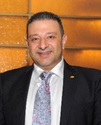|
|
Keynote Speakers |
| Manuel Castro |
|---|
 Manuel Castro is a professor of Electrical and Computer Engineering in the Spanish University for Distance Education (UNED). He has a doctoral industrial engineering degree from the ETSII/UPM on applications on the Renewable Energies in large utilities (1988). And is currently Head of Department of Electrical and Computer Engineering at UNED). He co-chaired the conference FIE 2014 (Frontiers in Education Conference) organized in Madrid, Spain, by the IEEE and the ASEE. He is Fellow member of IEEE (for contributions to distance learning in electrical and computer engineering education) and member of the Board of Governors (BoG) (2005-2012) of the IEEE Education Society and Jr Past-President (2015-2016) of the IEEE Education Society; Founder and Past-Chairman (2004-2006) of the Spanish Chapter of the IEEE Education Society, and Past-Chair of the IEEE Spain Section (2010-2011). He has been awarded with the 2012 TAEE (Technologies Applied to Electronic Education) Professional Career Award, IEEE EDUCON 2011 Meritorious Service Award of the EDUCON 2011 conference; 2010 Distinguished Member Award of the IEEE Education Society; 2009 Edwin C. Jones, Jr. Meritorious Service Award of the IEEE Education Society; with the 2006 Distinguished Chapter Leadership Award and for the collective work inside the Spanish Chapter of the IEEE Education Society with the 2011 Best Chapter Award (by the IEEE Region 8) and with the 2007 Chapter Achievement Award (by the IEEE Education Society). He is Member of the Board of the Spanish International Solar Energy Society (ISES).
Acquisition of Practical Competences through New Learning Technologies in Renewable Energy Engineering Education
New activities and learning technologies are impacting Renewable Energies Engineering Education. New teaching methodologies such as remote and virtual laboratories, MOOCs and blended learning, as well as different kinds of learning analytics, assessment and engagement will be analyzed and connected. The evolution of teaching through face-to-face, distance learning and now online learning will be linked to the increasing use of technology in teaching, analyzing the main critical factors in the EHEA as changes followed by other areas like Middle East and North Africa. This evolution is a key driving factor towards blended learning and jumping to open education (OCW and MOOCs) which are caused today by a change in the higher education paradigm pushed by the international crisis as well as the in-depth refurbishing of the public and private university roles in the different education steps and in life-long learning.
| | | Basim Saleh |
|---|
 Basim Saleh serves as Philadelphia Solar’s Chief Executive Officer. Philadelphia Solar is the first solar PV manufacturer in the MEA region and the only one in Jordan. Basim has around 20 years of experience in leadership and business development covering a broad range of activities from directing multi-million dollar joint ventures to running a global initiative for a Fortune 50 company. Prior to Philadelphia Solar, Basim ran international markets for Petra Solar, where he developed showcase projects like the largest distributed solar project in the Gulf and the largest solar PV rooftop project in the world.Basim joined Petra Solar from Microsoft Corporation, where he was directing a worldwide sales excellence initiative aimed at improving the performance of the Microsoft 15,000-strong sales force. Before moving to the Seattle area to run this initiative, Basim ran the consulting practice for Microsoft in the Gulf region out of Dubai, where he grew the consulting revenue by 60%, headcount by 30%, and delivery margins by 350% in a period of two years.Before Microsoft, Basim ran a business development consulting company out of New York focused on helping US companies grow their business in the Middle East and North Africa (MENA). Before moving to New York, Basim helped establish the largest software services company in Jordan, the result of merging two rival companies, and was able to help secure funds from Microsoft to establish this company (Estarta Solutions).
The First Utility-Scale PV Project with Jordanian Manufacturing, EPC, Financing, and Ownership
Philadelphia Solar is the only Middle East and North Africa based company to manufacture, develop, design, construct, own, and operate solar plants (annually 120 MW modules and 300 MW mounting structure). It was established in 2007, and initially focusing on the manufacturing of PV modules and exported its products to over 35 countries with the largest customers being in the UK, Holland, and Germany.
A very unique project of Philadelphia solar project development “AlBadiya” is one of 13 projects awarded by the Government of Jordan under the FiT scheme, 210 MW in total, with only project connecting to the grid Jordanian manufacturing, supply, engineering, construction, financing, and ownership. The project was 69% financed by Capital Bank with $10M facility by AFD using the SUNREF green credit line and $5M facility by CBJ. AlBadiya project implementation result has proven that Jordanians are able to deliver large-scale PV projects following international standards.
| | | Venizelos Efthymiou |
|---|
 Dr Venizelos Efthymiou from Cyprus is a holder of the UMIST university degrees: BSc in Electrical Engineering and Electronics, Master of Science (MSc) in Power Systems and Doctor of Philosophy (PhD). He worked for the Electricity Authority of Cyprus from March 1979 up to November 2013 and he left the Company from the post of Executive Manager Networks and from the post of Manager of the Distribution System Operator of Cyprus. He is a member of the Steering Committee of the SmartGrids European Technology Platform and of PV Technology Platform, chairman of the Research Centre FOSS of the University of Cyprus, General Treasurer of the Board of the Technical Chamber of Cyprus and chairman of CIGRE Cyprus. Through his extensive experience in EAC, the close and continuous cooperation with the University of Cyprus but also through the active participation in the work of EURELECTRIC and the European Technology Platforms SmartGrids and PV, he is the writer of many reports and papers of technical content with relevant publications in international magazines and proceedings.
Grid Integration of Renewable Energy Sources
Renewable energy sources are maturing and they are winning the acceptance of users, operators, regulators and policy makers. As penetration grows the intermittency issues that come with RES need to be addressed in a much more consistent and holistic way if penetration is not to be jeopardized. The problems of integration are much more pronounced in areas where the grids are weak or in isolated grids of islands. In such circumstances smart integrated solutions that utilize the capabilities of modern storage systems can offer optimal solutions that can preserve the quality and continuity of supply and even improve it. Operational needs of the integrated grid have long been served by the inertia of central generators and today this is gradually changing. Distributed generation and power electronics are taking over, calling for a paradigm change in how grids grow and operate. With the adaption of these new technologies, storage is gaining a central role in preserving the quality and security of supply that users are currently enjoying.
| | | Suhil Kiwan |
|---|
 Suhil Kiwan is a professor of energy engineering and dean of the school of engineering and management of natural resources at German Jordanian University. Prof. Kiwan published many research articles in the field of energy engineering. He taught many graduate and undergraduate courses in the mechanical and energy engineering at different universities inside and outside Jordan. Prof. Kiwan worked in establishing and directing the energy center at the ministry of energy and mineral resources (1986-1990). Dr. Kiwan directed the energy center at Jordan University of Science and Technology for three years during the period (2009-2011). He is a co-founder of DESIRTEC University network (DUN), EU-MENA-RISE. Prof. Kiwan worked in many EU funded projects in TEMPUS and ENPI programs. Such as MANSUR: master program on sustainable development and renewable energy at three different universities in Jordan: MUREE and MAPEC.
Renewable Energy Perspictives in Jordan
The status quo of energy situation in Jordan will be presented. The challenges of the transition and transformation plans to introduce energy from renewables to the energy mix in Jordan will be highlighted and critically discussed. Moreover, the talk will address Jordan’s energy regulatory achievements. The role of academia and R&D in advancing renewable energy and energy efficiency in Jordan will be critically presented and addressed.
| | | Handri Ammari |
|---|
 Professor Handri Ammari has obtained his BSc. in Mechanical Engineering in 1975 and his PhD. in 1989 from Nottingham University, England. He has been since working as a member of staff in the Faculty of Engineering at Mu’tah University (MU), where he has taught many courses at both graduate and undergraduate levels, and supervised many MSc. students. In addition, he had held many administrative and technical positions, including Head of Department of MEng., Vice-Dean of the Faculty of Engineering, Chairman of the Energy Committee at the Scientific Research Support Fund in The Ministry of Higher Education and Scientific Research, and currently a member of the scientific committee at MU. Further, Professor Ammari is a co-chair since 1998 of the Jordan National Committee of the International Institute of Refrigeration based in Paris, France. His area of research involves renewable energy, utilization of oil shale, modified refrigeration cycles, and heat transfer on gas turbine blades.
Renewables Opportunities in Jordan Red-Dead Sea Project
The Jordan Red Sea–Dead Sea Project is a proposed conduit which would run from the Red Sea to the Dead Sea. It will provide potable water to Jordan, bring seawater to stabilize the Dead Sea water level, and generate electricity to support the energy needs of the project. The core project involves the financing, planning, design, construction, operation and maintenance of a water conveyance system to transfer saline water over 200 kilometers from the Red Sea north to the Dead Sea and to Amman with large scale desalination of seawater for Jordan and other regional interests. Excess seawater and desalination brine will be discharged to the Dead Sea. The water would first be pumped up 250 meters from the Red Sea, and then would provide hydroelectricity as it travels down to the Dead Sea (elevation 423 meters below mean sea level). The use of renewable energy in this giant project would improve productivity and raise the overall efficiency. A first renewable opportunity is of supplying the seawater-pumps station in the project the electrical power required to deliver the water along the Red-Dead Sea distance by a large photovoltaic system (or wind power) utilizing solar radiation. A design of a 1155 MW on-grid photovoltaic system would be proposed to operate the seawater pumping station that needs 2 TWh/yr of electricity to pump 2000 MCM/yr of seawater from Red Sea to Dead Sea. A second renewable opportunity is in selecting an efficient type of hydraulic turbines for the two hydro-power plants in the project. A proposed optimal type is the Pelton wheel turbine with 93% efficiency, in which six turbines, three in each plant, would provide the total rating power for both plants of 249.5 MW with annual energy yield of 2141.8 GWh/yr and annual saving of 1.379 million tones of CO2.
| | | Ahmad Salaymeh |
|---|
 Professor Ahmed Al-Salaymeh is the director of Water, Energy and Environment Center and a Professor at the Mechanical Engineering Department. He received his Ph.D. degree from Friedrich Alexander University in Erlangen, Germany in 2001. He organized and participated in many workshops, seminars and conferences in the field of Energy, Renewable Energy and Green building. He is also an expert in the Field of Energy Regulation. He is the local coordinator of two Tempus projects on the establishment of Master program on sustainability and the renewable energy and on the establishment of a master program in environmental engineering and climate change.
Current Energy Resources, Challanges and Regulatory Framework in Jordan
An overview about energy resources and challenges that faces Jordan to shift towards utilization of renewable energy will be presented. The need for regulatory framework and the steps which have been achieved till now will be discussed. In addition to the legislation, the other factors that contribute toward the promotion of renewable energy resources will be discussed. The need for qualified professionals in the renewable energy will be shortly presented and the role of MUREE project in promoting renewable energy among engineering students will be given
| | | Bashar Hammad |
|---|
 Bashar Hammad received B.S. degree from University of Jordan in 1997, M.S. degree from University of Texas at Arlington in 2003, both in Mechanical Engineering, and PhD in Engineering Mechanics from Virginia Tech (VT) in 2008. He received the Graduate Teaching Fellowship at VT in 2007. He focused on solar energy in his undergraduate study and micro-electro-mechanical systems (MEMS) in his postgraduate research. He joined the Hashemite University (HU) as an assistant professor in the Mechatronics Engineering Department. His current teaching and research interests are in solar photovoltaic systems, building automation, and energy harvesters. He served as assistant dean and is currently the director of Academic Quality Assurance Center at HU.
Photovoltaic Systems at the Hashemite University
In this presentation, Bashar Hammad talks about solar energy research at the Hashemite University (HU), especially the photovoltaic (PV) projects. A thin-film PV project is being tested in the local conditions. Four on- and off-grid fixed and tracking systems are installed to investigated their performance in semi-arid environment conditions. Motivations and driving forces for the 5 MW PV project, that will supply HU with its electricity requirement, will be presented in addition to the most important features, technical issues and the progress of the project.
| | | Fadi Izzat Marji |
|---|
 Fadi Izzat Marji is director of Operations and Development, and Director of Renewable Energy and Energy Efficiency Department, Izzat Marji Group. He has an MBA in Renewables from Beuth University of Applied Sciences, Berlin and a B.Sc. Electrical Engineering, University of Jordan. He attended an “Advanced Practical RE & EE Implementation” course at RENAC (Renewables Academy) in Berlin, covering the following topics: (Energy Efficiency in Building Environment, Energy Efficiency in Industry and Commerce,Biogas, Solar Thermal, Solar Photovoltaics, Wind Energy, Grid Integration). Izzat Marji is Certified CEM® (Certified Energy Manager) by AEE (Association of Energy Engineers) and REP® (Renewable Energy Professional) by AEE and Ans as official “REP® trainer” by AEE.
Feasibility of Solar PV Projects ‘Cash Flow Analysis and Profitability’
In April 2012, the Renewable Energy Law was ratified by the Jordanian parliament and was finally introduced. In the following months, the corresponding bylaws, regulations and directions, particularly the ones related to the grid connection and access, were likewise introduced. This regulatory framework permitted body corporates or individuals to install Renewable Energy Systems for the purpose of generating electrical power, to cover up to 100% of the own consumption, benefiting from the "Net-Metering" scheme.The RE Law created new opportunities in the Jordanian market, for both private and business structures, to install PV systems in order to reduce or even eliminate the burden of the rising monthly electricity invoices. Investing in solar PV in residential and commercial buildings in Jordan is very attractive and makes sense especially as the electricity tariffs for these sectors are extremely high, and will even increase further in light of the fact that the current power costs are still subsidized. Notwithstanding, the main challenge remains in financing these projects. Despite the fact that the payback period of such investments is very short (between three to seven years relying upon the consumption category and the tariff type), the main hurdle remains in the initial upfront investment. In this presentation, all the above points shall be tackled. Additionally, the impacts of the technical and financial parameters shall be interlinked. The risk factors shall be also identified and investigated. Different financing alternatives shall be presented. Financial investment analysis showing the attractiveness of Solar PV projects shall be finally discussed and demonstrated.
| | | Paolo Venturini |
|---|
 Paolo
Venturini has received master degree in mechanical engineering in 2004, master
in energy efficiency and renewable energy in 2006, PhD in theoretical and applied
mechanics in 2010, all from Sapienza Università di Roma, Italy. He is currently
working as an assistant professor at Sapienza University in research fields
such as renewable energy (biomass and biofuels) and multi-phase flows in
turbomachinery applications.
Pollutant Emissions in
Common-Rail Diesel Engine in Extra Urban Cycle: Rapeseed Oils vs Diesel Fuel
The
new EU energy strategy requires increasing the use of biofuels in transports up
to at least 10% of the total fuel consumption. Straight vegetable oils (SVO)
can represent one of the available possibilities in some specific applications
(i.e., public transport, hybrid or marine propulsion, etc.). Operating a Diesel
engine with SVO might result in some problems, especially in automotive
configuration where the electronic unit acts as if it is working with Diesel
fuel. This reflects in possible engine power and torque reduction, maintenance
problems, and pollutant emissions during vehicles running. In the research, a
turbocharged, four stroke, four cylinders, water cooled, common-rail multi-jet
Diesel engine in automotive configuration has been used to reproduce the extra
urban cycle according to the EU standard, comparing pollutant emissions in case
of SVO and gasoil fuelling.
| |
|
|
| |
| |
|